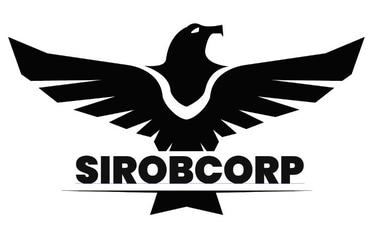Demystifying Digital Marketing: A Comprehensive Guide
Digital marketing has emerged as a cornerstone of modern business strategies, enabling brands to reach their target audience with unprecedented precision and efficiency.
Demystifying Digital Marketing: A Comprehensive Guide
In today's digital age, where technology and connectivity reign supreme, traditional marketing methods are gradually giving way to more dynamic and targeted approaches. Digital marketing has emerged as a cornerstone of modern business strategies, enabling brands to reach their target audience with unprecedented precision and efficiency. In this comprehensive guide, we'll explore the fundamentals of digital marketing, its key components, and how businesses can leverage it to achieve their goals.
What is Digital Marketing?
Digital marketing encompasses a broad range of online strategies and tactics aimed at promoting products or services through digital channels. Unlike traditional marketing, which relies heavily on print ads, television commercials, and direct mail, digital marketing leverages the power of the internet to connect with consumers in real-time. From social media and search engines to email and content marketing, digital channels offer unparalleled opportunities for engagement, interaction, and conversion.
Key Components of Digital Marketing:
Search Engine Optimization (SEO): SEO is the process of optimizing a website to improve its visibility and ranking on search engine results pages (SERPs). By incorporating relevant keywords, creating high-quality content, and optimizing technical aspects such as page speed and mobile-friendliness, businesses can attract organic traffic and increase their online presence.
Pay-Per-Click Advertising (PPC): PPC advertising involves placing ads on search engines or social media platforms and paying a fee each time a user clicks on the ad. Platforms like Google Ads and Facebook Ads allow businesses to target specific demographics, interests, and behaviors, ensuring that ads are displayed to the most relevant audience.
Social Media Marketing: Social media platforms such as Facebook, Instagram, Twitter, and LinkedIn serve as valuable channels for brand promotion and engagement. Through organic posts, paid advertising, influencer partnerships, and community management, businesses can build relationships with their audience, drive website traffic, and generate leads.
Content Marketing: Content marketing revolves around creating and distributing valuable, relevant, and consistent content to attract and retain a target audience. Whether it's blog posts, videos, infographics, or podcasts, compelling content helps establish authority, foster trust, and drive conversions over time.
Email Marketing: Email marketing remains one of the most effective channels for nurturing leads and driving sales. By segmenting audiences, personalizing messages, and delivering timely and relevant content, businesses can strengthen customer relationships, promote products or services, and drive repeat purchases.
Digital Analytics: Measurement and analysis are integral to the success of any digital marketing campaign. Digital analytics tools such as Google Analytics provide valuable insights into website traffic, user behavior, conversion rates, and ROI, allowing businesses to refine their strategies and optimize performance.
Benefits of Digital Marketing:
Targeted Reach: Digital marketing enables businesses to target specific demographics, interests, and behaviors, ensuring that messages reach the most relevant audience segments.
Cost-Effectiveness: Compared to traditional marketing channels, digital marketing often offers a higher ROI due to its ability to track and measure results more accurately, allowing businesses to allocate resources more efficiently.
Real-Time Engagement: With digital marketing, brands can engage with consumers in real-time, responding to inquiries, addressing concerns, and fostering meaningful interactions across various channels.
Scalability and Flexibility: Digital marketing campaigns can be scaled up or down quickly to accommodate changing business needs, market conditions, or seasonal trends, providing greater flexibility and agility.
Global Reach: The internet knows no bounds, allowing businesses to reach audiences around the globe regardless of geographical constraints, opening up new markets and opportunities for growth.
Conclusion:
In today's hyper-connected world, digital marketing has become an indispensable tool for businesses looking to thrive in a competitive marketplace. By embracing digital channels, leveraging data-driven insights, and adopting a customer-centric approach, businesses can create impactful marketing campaigns that resonate with their target audience, drive engagement, and ultimately, drive business growth. As technology continues to evolve, so too will the landscape of digital marketing, presenting new opportunities and challenges for brands to navigate in the digital era.




